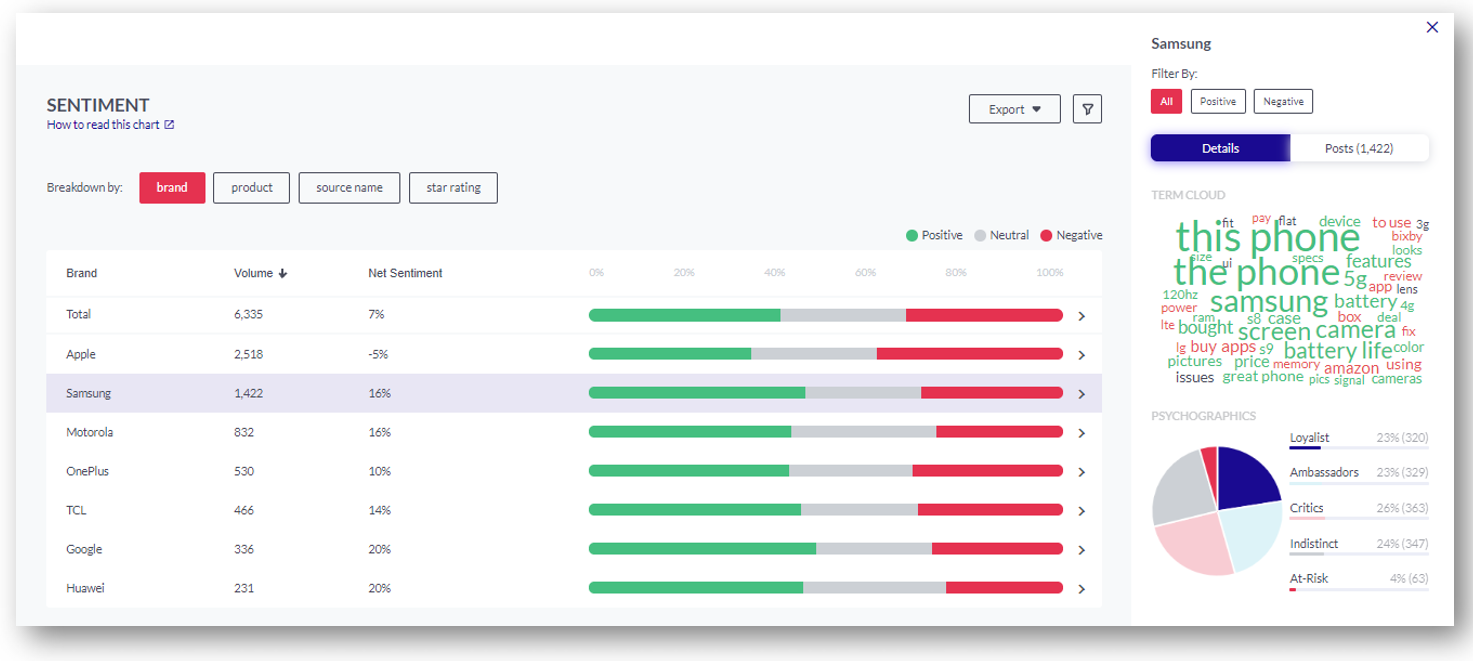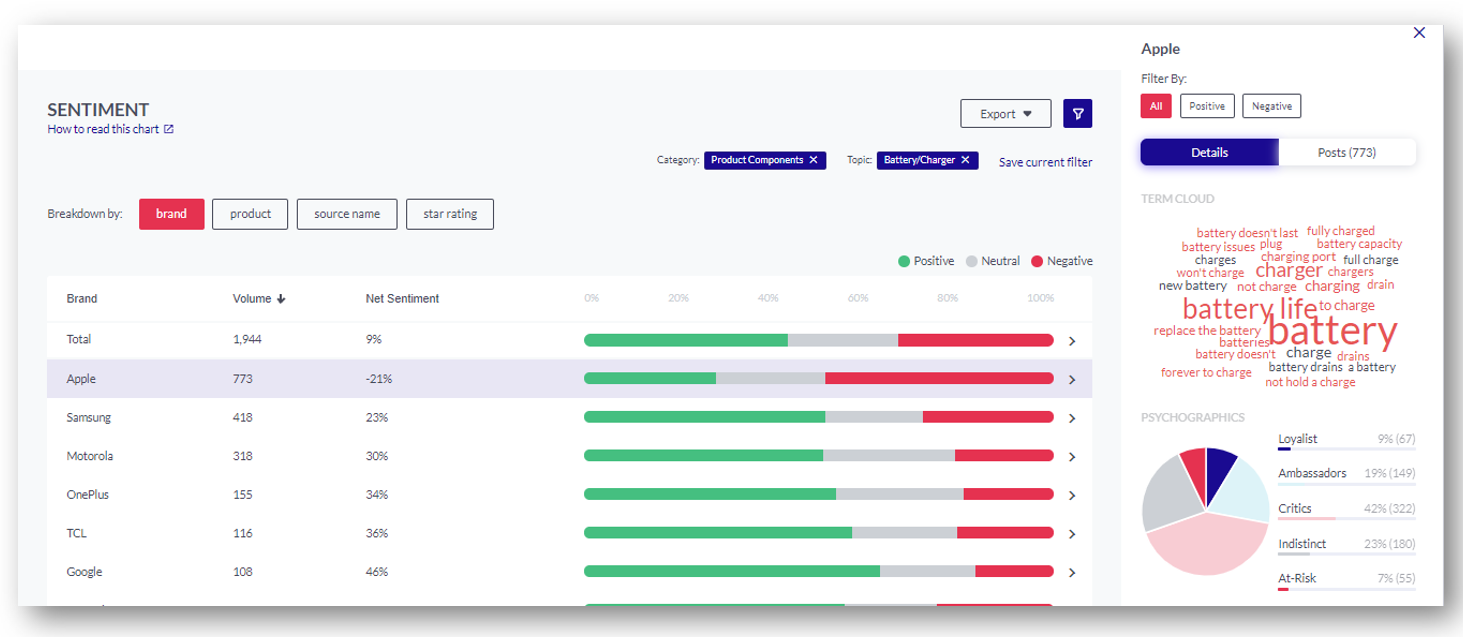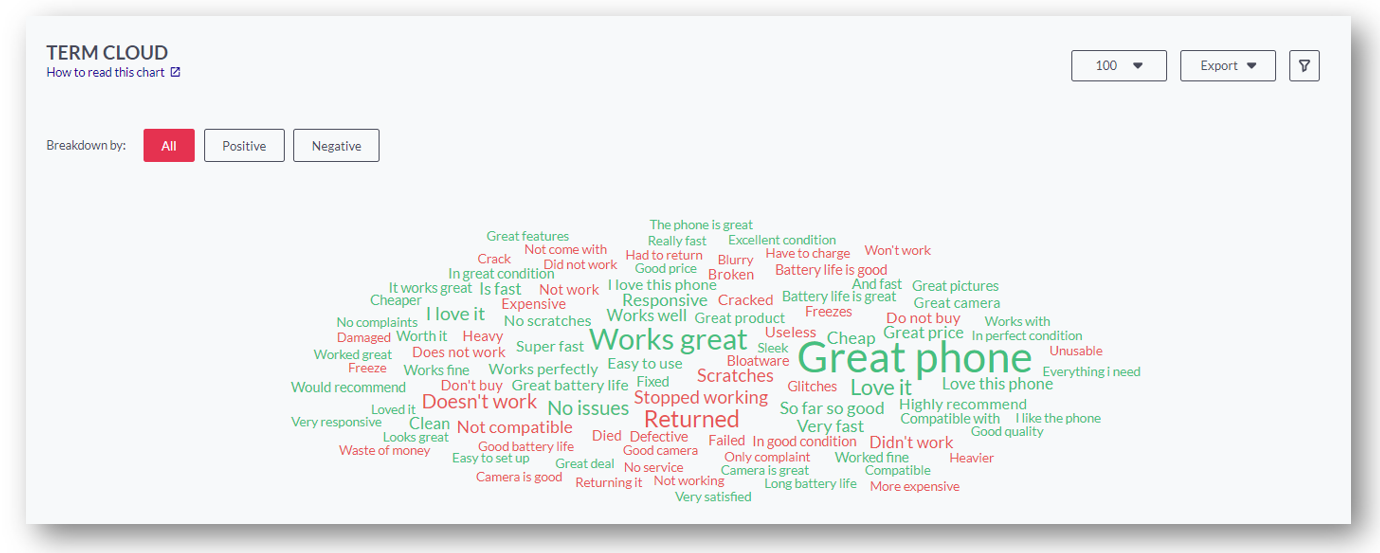What is Sentiment?
Understand how sentiment analysis works
1. About Sentiment Analysis
2. Topic Sentiment
3. Net Sentiment
4. Term Cloud
1. About Sentiment Analysis
Our sentiment analysis is based upon a post-level-based deep learning model that detects the sentiment of an entire text and toward specific topics or categories. It goes beyond keyword sentiment and rather looks at sentences and paragraphs as a whole, to truly understand what sentiment is associated with what topic.
The sentiment analysis adds to the categories and topics analysis to convey not only what a person talks about, but also how they feel about it.

2. Topic sentiment
Topic sentiment refers to the sentiment towards a specific topic mentioned in the text. While a text has one single overall sentiment polarity, it can have different sentiments towards different topics within a text.
Example:Topic Sentiment for the Topic 'Price':
Worth it for the money! A reasonable selection of movies and TV, reasonable price, works really well on my phone, tablet, and laptop. Had a couple of glitches in the past but these have always been ironed out quickly!
In this example, the topic "Price" (Worth it for the money; reasonable price) has a positive sentiment, while the topic "Technical/Bugs" (a couple of glitches) has a negative sentiment. Overall, however, the sentence is positive.
The topic sentiment defines the most positive and negative topics and is reflected in the color of the term cloud.

3. Net Sentiment
The Net Sentiment is the net value of all those opinions expressed about a specific category or topic.
Net Sentiment = [(count of positive terms - count of negative terms)/ total count of terms] *100
If you want to read more about Net Sentiment please visit our FAQs page: What is Net Sentiment?
4. Term Cloud
While our sentiment analysis relies on the entire context, the engine also highlights specific words and phrases that bear strong sentiment ("sentiment terms"). You can view these terms related to a meta field, such as a Brand, Product, or specific category or topic in the "Term Cloud"
